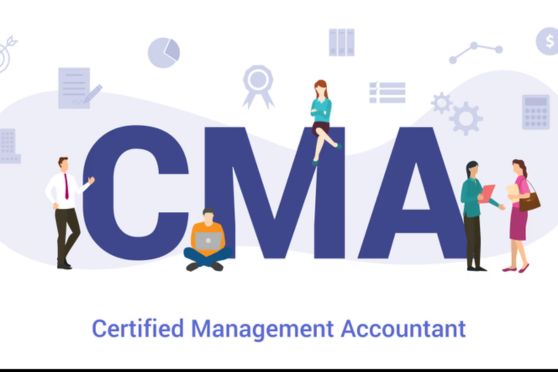Start Early, Lead Faster: 10 Benefits of Choosing CMA After 12th to Boost Career Growth


While many students have clear ideas about the degree they want to pursue, only a few recognise how dramatically the professional world has evolved. Today, employers are not confining themselves to the grades of interviewees; they want proof of skills, credentials, and the ability to make decisions that impact real business outcomes. Among the various options available for aspirants nowadays, the Certified Management Accountant (CMA) program stands out for its global recognition, practical focus, and ability to boost employability. Here are the top 10 benefits of pursuing CMA after 12th that make it a powerful career move for students.
1. Global Recognition
The CMA designation is recognised across multiple countries, giving professionals access to opportunities beyond domestic boundaries. It prepares students for careers in markets that value consistent and standardized expertise in management accounting.
2. Early Career Head Start
Starting CMA after 12th allows students to complete the program at a younger age, often before many peers consider professional qualifications. This head start enables candidates to apply for internships and placements with stronger credentials, building early career momentum.
3. Industry-Relevant Curriculum
The CMA syllabus focuses on financial planning, analysis, decision support, and performance management. These subjects are highly relevant to corporate functions, allowing students to connect their learning directly with workplace demands.
4. Enhanced Employability
Employers across industries actively seek CMA-qualified professionals because they demonstrate technical knowledge combined with decision-support capabilities. This makes the qualification stand out during hiring and placements, where employers prioritise candidates who are prepared to contribute from day one.
For young professionals, this translates into better chances of securing positions in competitive roles. India’s Services PMI reached 59.3 last year, marking strong expansion in the services sector, including finance and accounting, with employment indicators rising. Financial, real estate, and professional services grew by 8.1%, reinforcing the opportunities for qualified candidates. With the services sector contributing 55.3% to India’s GVA in FY25 and India ranking as the second-largest exporter of IT and telecom services globally, career options for CMAs are diverse and international.
5. Competitive Edge in the Job Market
In a pool of applicants with similar educational backgrounds, CMA distinguishes candidates by highlighting specialized training in finance and management. This added credential often becomes the deciding factor in shortlisting and hiring.
6. Access Across Sectors
CMA professionals are in demand across consulting firms, financial institutions, multinational corporations, and even manufacturing and service industries. Whether you dream of working in a startup, a global firm, or a consulting giant, CMA opens doors across industries.
7. Pathway to Leadership Roles
CMA is not restricted to technical expertise solely. The program builds analytical and decision-making skills that prepare candidates for supervisory and managerial tracks. Starting this pathway earlier creates the possibility of reaching leadership positions sooner.
8. Cost Efficiency
Taking CMA alongside graduation reduces the overall expenditure of time and money. Early completion of the program means that the student enters the market with high earning potential without any delay in launching their career.
9. Flexible Learning Structure
The exam format and self-paced preparation options allow students to balance CMA with their degree studies. This flexibility makes it possible to pursue the qualification without disrupting academic schedules.
Additionally, the CMA qualification is structured in three levels, allowing students to progress step by step while balancing their academic studies: Foundation, Intermediate, and Final Level.
10. Long-Term Growth Prospects
CMA is widely regarded as a program that supports lifelong career growth. The skills gained remain relevant as industries evolve, ensuring professionals are equipped for both current demands and future developments.
Pursuing CMA after 12th combines academic learning with professional readiness in a way that directly supports career ambitions. The program’s global recognition, industry alignment, and emphasis on leadership skills provide benefits that begin early and continue throughout a professional journey. For students aiming to stand out in a competitive job market and plan for long-term career growth, CMA is a strategic launchpad for success.
About the Author:
Anant Bengani is the Director & Co-Founder of Zell Education, one of India’s fastest-growing ed-tech organizations in Accounts and Finance. A Chartered Accountant with a background in Financial Markets, he co-founded Zell in 2015 and was recognized in the 30 Under 30 Young Entrepreneur list in 2021. Passionate about mentoring students and professionals, he actively guides them in navigating career opportunities.